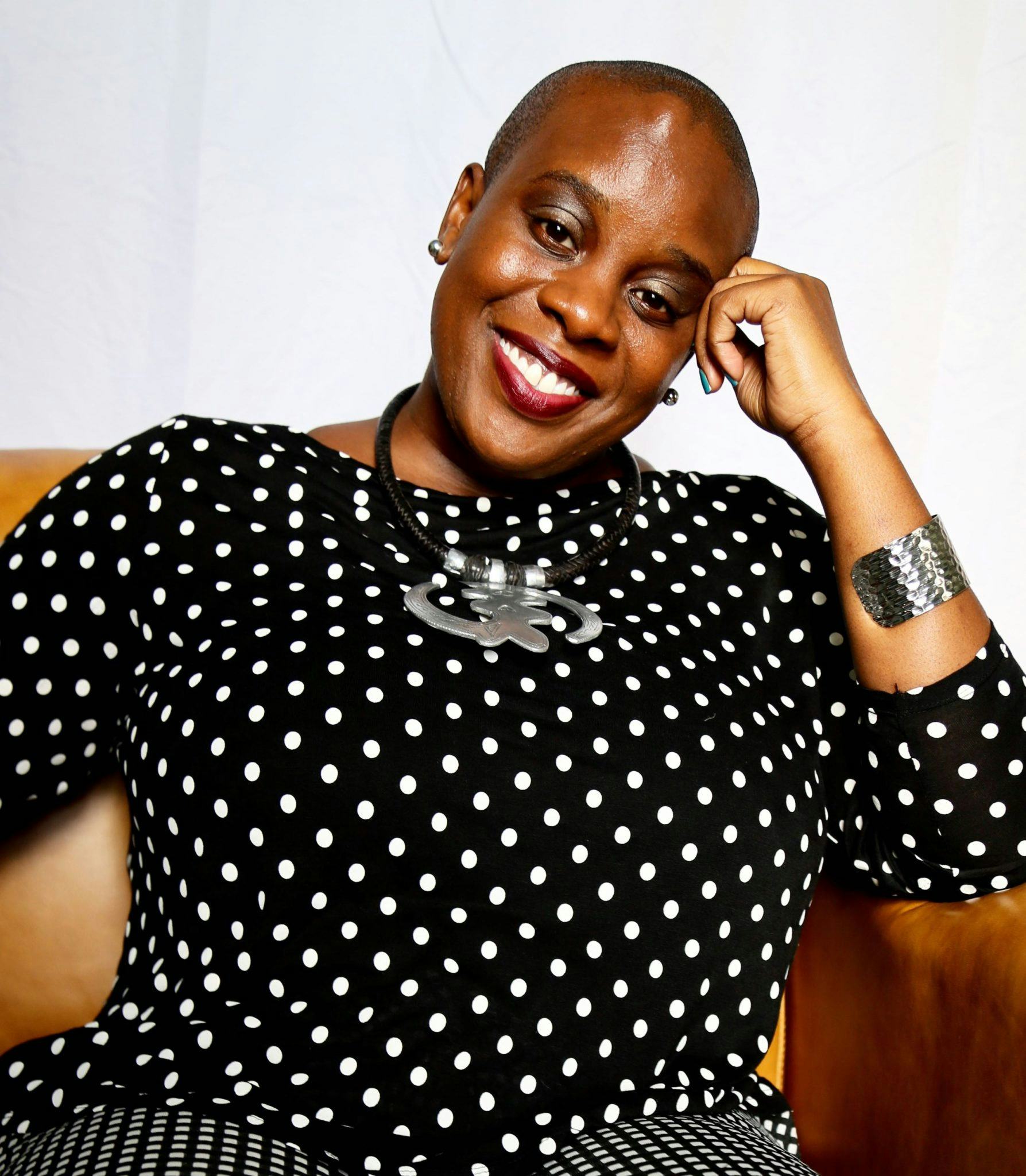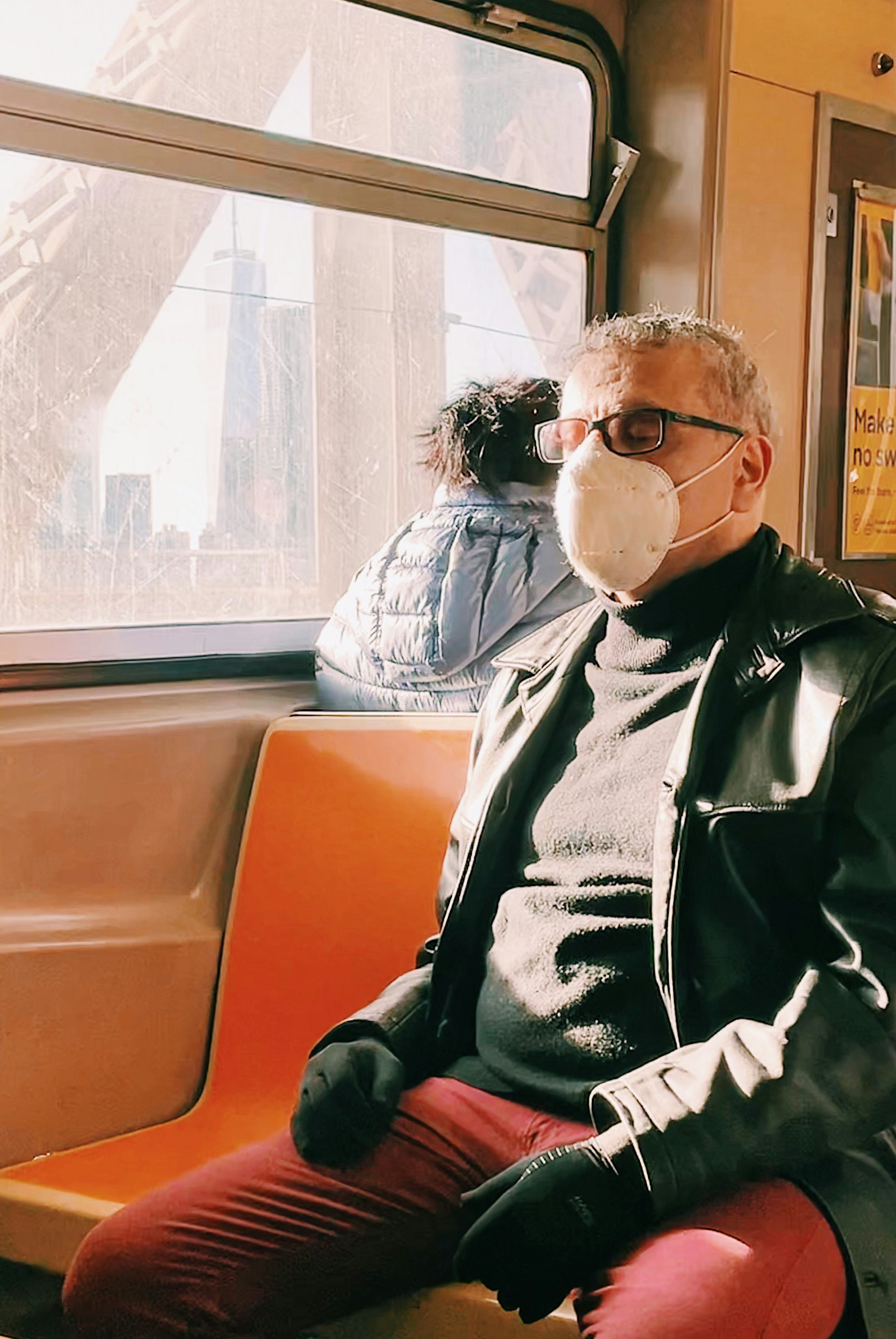Rev. Kyndra Frazier is a community healer, pastor, clinical practitioner, leader, founder, writer, and teacher. A graduate of Emory’s Candler School of Theology and Columbia School of Social Work, Rev. Frazier combines clinical practice and pastoral care in her work with individuals, families, and communities. She served as the Founding Executive Director of the HOPE Center Harlem, which, under her direction, earned the 2020 American Psychiatric Association Minority Mental Health Award. Rev. Frazier is the founder of KYND Consulting, Inc.
KYND provides counseling services and spiritual direction to individuals, couples, and families, executive listening sessions to business and community leaders, and a seven-week trauma-informed care training for organizations and churches. KYND roots its work with three pillars – love, life, and devotion – and writes, “our desire [is] to invite humanity, as a collective, into the sweetness of being devoted to their becoming. In ways that liberate hearts and minds, dismantle traditional mindsets that perpetuate harm and disrupt our culture’s constant invitation to please someone external to ourselves.” Rev. Frazier co-hosts the Discovering Wholeness Podcast, which focuses on trauma-informed care and spirituality.
In our time together, Rev. Frazier and I spoke about her journey to clinical practice, the importance of trauma-informed training, and individual and collective healing.
What was the cultural landscape of your childhood, and how did this context prepare you for community and healing work?
The cultural landscape of my childhood was filled with a lot of love. The church I grew up in was a traditional Christian church. My great-grandmother helped charter it over 115 years ago. It is a family church through my maternal ancestry. The institution of church was a big part of my life early on.
I remember my maternal grandmother cooking Sunday dinners and not only inviting the immediate family, but also inviting folks in the community and folks who attended the church. There was always this sense that we had enough to share and that the opportunity to fellowship over food, bringing everyone together, was a gift.
In our household, I knew my mom and dad worked hard. My mom was and is a Human Resources manager. My dad was a pest control technician; he’s since retired. Watching the way they worked to provide for us informed my own work ethic. My parents told my sister and me, “If you want something, then you have to decide how to get that.” I learned through them that a consistent work ethic builds character.
At 12, I went next door to my neighbors’ house and helped her clean up around the house. They were an elderly couple, one of the few White couples on the street. My neighborhood experienced White flight after many African-Americans started moving in around the 70s. Mary and Ted, I’ll never forget them. They were a very sweet couple. Being raised in Charlotte, North Carolina, I went to schools, which were about 60% White and 40% Black. Growing up in Charlotte gave me an opportunity to connect with people who were different from me ethnically and religiously within and outside of academic settings.
I had so many members of my family who poured into me in ways that inform the work I do now. My grandfather was a butler for the same White family for over 50 years. He provided for six children and was able to support me in going to college without any undergraduate debt. I’m indebted to him for the sacrifices he made. The systems that were in place then and are in place now didn’t give him access to do something beyond that, but he made the most of what he had and created a beautiful legacy of what it means to not only love, but an understanding that it is not about what you do, but the integrity you embody as you do it. He taught me the importance of acting with integrity and accountability. My favorite uncle, Alfred (my mom’s brother), is an entrepreneur. He was the reason why I went to school for Business Management. I truly had a rich cultural experience growing up, from church to academia to family.
Is there a particular experience in community which has stayed with you? What made this community a transformative context for you?
The community which has had the greatest impact and influence on me to date was a program called “Love of Learning.” It was founded by Rev. Brenda Tapia in 1989 on the campus of Davidson College. Rev. Tapia passed away in February of 2020. “Love of Learning” was a summer academic program that brought high school students to Davidson to take summer classes in advance of the upcoming school year and introduced us to other subjects like channeling, Yoruba studies, meditation. Even though Rev. Tapia was an ordained Presbyterian minister, she welcomed all faiths being represented and encouraged us to explore our spirituality in ways the public school systems did not make room for. It was primarily intended for Black children. The program was enriching and transformative. It not only helped us learn how to engage the school system academically, it also gave us another lens to see the world and to envision who we could become.
There, I was exposed to an organization called Time Out Youth, a panel of LGBTQ persons. In 1996, I remember listening to a minister, who identified as lesbian, speak about her journey. Knowing my own challenges around my sexuality and spirituality, I saw that it was possible, even though, at the time, I didn’t know how I would become my authentic self. I knew there was a possibility, though, through seeing her.
The program also had a very rich, comprehensive sex education class, in which students could ask questions that we were too shy to ask our parents. We felt supported and safe to ask questions, to be informed, to take care of ourselves, to see ourselves as sacred, and to think about what it meant to be responsible for your own sexuality. “Love of Learning” was so influential for me that I went on to be a counselor/mentor in the program and then later, a resident advisor for students. I think 500 to 600 students came through the program and about 140 of us are ministers today, which speaks to the degree to which spirituality was blended with academics.
You have since studied religion and social work. What drew you to work at this intersection?
In the fifth grade, I wanted to be a mechanical engineer. I remember a mentor of mine said, “The world is moving towards computers, so maybe you need to pursue computer science.” I majored in “Management Information Systems.” Shortly after graduating, I realized corporate America was not for me. I had the sense, starting around my senior year of college, that I’d be going to seminary, but I just didn’t know when.
I was called to ministry around the age of fourteen. When I moved to Atlanta and met my first girlfriend, I entered into a direct conversation with God. I had been taught never to question God, so I felt like I was withholding from the Divine. I said to God, “Well, you know, I’ve been trying to pray this thing away. Are you okay with me being gay?” The response was, “I’ve always been okay. You never asked me.” This was mind-boggling for me. I held a set of beliefs bequeathed to me from my spiritual community. My spiritual foundation was not in alignment with this new message that I was hearing from God. The confidence and assurance that I was okay, that it was natural, helped me give myself permission to pursue ministry and apply for divinity school.
After graduating, I worked for a Level 1 Trauma Center in Atlanta, where I worked with a young man who attempted to castrate himself. I recognized that I did not have the skillset to support him in the ways I felt he needed. That experience led me to social work school to gain practical skills to pair with my pastoral skills, to more effectively support people where they were. I knew it was not going to be enough for me to pray with them; I needed other skills to support people in thriving.
What was your early vision for KYND like?
The early vision for KYND began in 2015. I told a friend of mine that I didn’t know what it would look like, but that I knew I was being led to create something. This same friend ended up surprising me with a website called KYND Inc. that she had created. It was really sweet, just a reflection of my vision. But this was right after I graduated from social work school, so I left it on the back burner.
A few years later, I was called into a pastoral position at First Corinthian Baptist Church. I closed the KYND in Atlanta, opened it in New York, and began doing contract work in 2019. It became clear that I wanted to marry individual and family counseling with trauma-informed care and training with ecclesial communities. Communities with socially constructed minority groups, in particular, are hard pressed to find language for the ways that systems oppress and engender trauma. Creating the HOPE center also informed what I wanted to do with KYND. In creating the curriculum for a trauma-informed church training, I could help fill the gaps in understanding the widespread nature of trauma and support people in developing basic skills to respond to trauma within spiritual communities.
KYND outlines three pillars for the work: love, life, and devotion. What led you to choose and name these principles for your vital work?
Yesterday, I was on a panel discussion with three other colleagues at Columbia School of Social Work – my alma mater – and one of these women leaders, named Angelica and known as the village auntie, used a term “self-belonging.” She underscored the importance of belonging to the self before you belong to any other and raised the question: who or what gives you a sense of belonging?
For me, love is what gives people a sense of belonging. Cultivating a loving relationship with yourself first allows you to extend more kindness and grace to ourselves and others. This ethic of love makes room for our shadows and necessitates us to eventually practice forgiveness and acceptance in order to do the work of healing. This is the reason why love is so important. Love is the cornerstone of being human.
All life is precious, which is why we chose “life” not live. Patriarchy and White supremacy have curated a culture in which some lives, particularly White lives, are more valuable than others. When I see the word “live,” I’m always curious to know, “whose life are you prioritizing?”
Life is all sentient beings, human beings and animals. All life is precious and valuable, all of it. What does it mean to see your life as worthy of cultivating seeds of healing; which catapult you into your dreams and heart’s desires; but you can’t make room for other humans to have the same access and opportunity? Life is holy. I think if we could see each human as sacred the world be a much different place . For me, God is wholeness, but we miss this wholeness within ourselves. We miss the sacredness of ourselves.
Valuing ourselves in that way can teach us to value others in the same way. It is a daily practice. You have to be devoted to learning and unlearning things within yourself, about yourself, and the experiences of your neighbor. We must all be devoted to the work of anti-racism and transformative justice, and apply both on micro and macro levels.
What is most important for people to understand about trauma-informed paradigms and care?
Trauma-informed care teaches people how to realize, recognize, and respond to trauma as well as how to resist traumatizing others. At the HOPE Center, we were clear that the main presenting mental health vulnerabilities were post-traumatic stress disorder, anxiety and depression. I recognized the importance of psychoeducation within the church to support people and teach communities what to look out for. Many Black and Brown people have experienced the physiological symptoms of depression, anxiety, and trauma, but don’t have the language for it. They know they haven’t been eating for weeks, and they’re feeling sad, but they might not name it as “grief or depression.”
I wanted to give communities language for trauma, particularly Black and Brown communities. Black people particularly have experienced trauma so pervasively and so often in our country that we normalize the experience of trauma. I believe that the training gives an opportunity for people to be able to identify what their own challenges have been.
When people start hearing about trauma and hearing about the signs and symptoms of it, or depression or anxiety, they started saying, “Oh, I remember when I experienced that moment, or I remember this friend, or I have a cousin or my uncle.” It becomes very personal, and people start opening up to the ways that they’ve been impacted by trauma. Trauma can be incurred directly or indirectly by simply witnessing a life-threatening event. I love seeing people’s lights come on in terms of their own experiences.
I believe that the church doesn’t do a very good job of training pastors on how to effectively communicate in an effort to resist retraumatization. It has been my experience that for those who are not as intentional about their healing, whether that be through therapy or life coaching or through another modality, that we end up perpetuating the same dysfunction from our family system. For many church leaders, dysfunction is how they lead their church, which is damaging to so many people sitting in the pews and serving on pulpits.
I value the opportunity to talk to lay leaders about how defensiveness impacts those who walk through the doors, what it looks like to ignore people and not respond in a timely way, what it means to use demeaning language, and that there are better ways that we can effectively communicate which support wholeness.
Part of these trainings is learning to deescalate crisis. Often, lay leaders are the first responders to various mental health presentations. It’s important lay leaders and community members are informed about the widespread nature of trauma, how it can affect how people show up within church walls and the overall community, and how to not exacerbate someone’s trauma.
What have you learned about healing, on an individual or collective, during the pandemic?
We continue to discover how innovative we are in finding ways to connect. The creativity that I’ve seen during this time has been amazing. When the pandemic was at its height in New York, there was a specific time that the shifts would switch at the hospital. Around 7:00 PM, everybody clapped and yelled out their windows. I know that was happening around the country.
The people I’ve been in contact with are listening to each other differently, are asking more questions underneath the surface, are being present with each other in ways that we may not have been pre-COVID. I think that is the gift.
My work has shifted all online. In person, you can sense the energy of someone’s physical presence, but I’ve been thinking about the ways in which the virtual experience of therapy facilitates treatment as well it detracts from it.
We have lost some of the traditional rituals we had pre-COVID, which has been challenging, particularly for those who have experienced the death of loved ones and who are now dealing with complicated grief. What does it mean to support people in that trauma? People aren’t able to touch one another in the ways that we used to, which has been very difficult for so many.
The gift of this time is that it pushed us more in dialogue about the things that really matter.
As a leader and practitioner, where are you finding hope and strength these days? How are you filling yourself up so you can help others heal?
I’m finding hope in seeing so many women engage in their entrepreneurial pursuits in a way that we weren’t before. I think of you and how you started Clerestory. I think of other friends who are starting businesses centered on impacting change in their communities in transformative and palpable ways.
My own spiritual practice of ancestral veneration gives me hope. I know I don’t do this work alone. I come from a long legacy of preachers, healers, medicine men and women, who have done this work before me and their legacy joins me. Being able to get up and breathe, doing the work of campaigning with people, being able to witness on an individual level how people are making transformations gives me hope.
Any shift that aids in abundant living is a powerful transformation, whether you name it as small or big; that gives me hope. Having churches reach out who are wanting to do trauma informed training gives me hope because that shows me they see it as a critical issue. It is my goal that the language and practice of trauma-informed care is amplified within our communities, cities, and states in an effort for all of humanity to experience a life that thrives.
*
Follow Rev. Frazier on Instagram, Twitter, and Facebook.
Learn more about KYND’s offerings, and follow KYND Consulting on Instagram and Facebook.
Sign up for KYND Consulting’s newsletter.
Follow the Discovering Wholeness Podcast on Instagram and Facebook.
*
This interview has been edited for length and clarity. Photograph by James Reynolds.
Sarah James is the editor-in-chief and founder of Clerestory Magazine.
Discover more from Sarah James.









